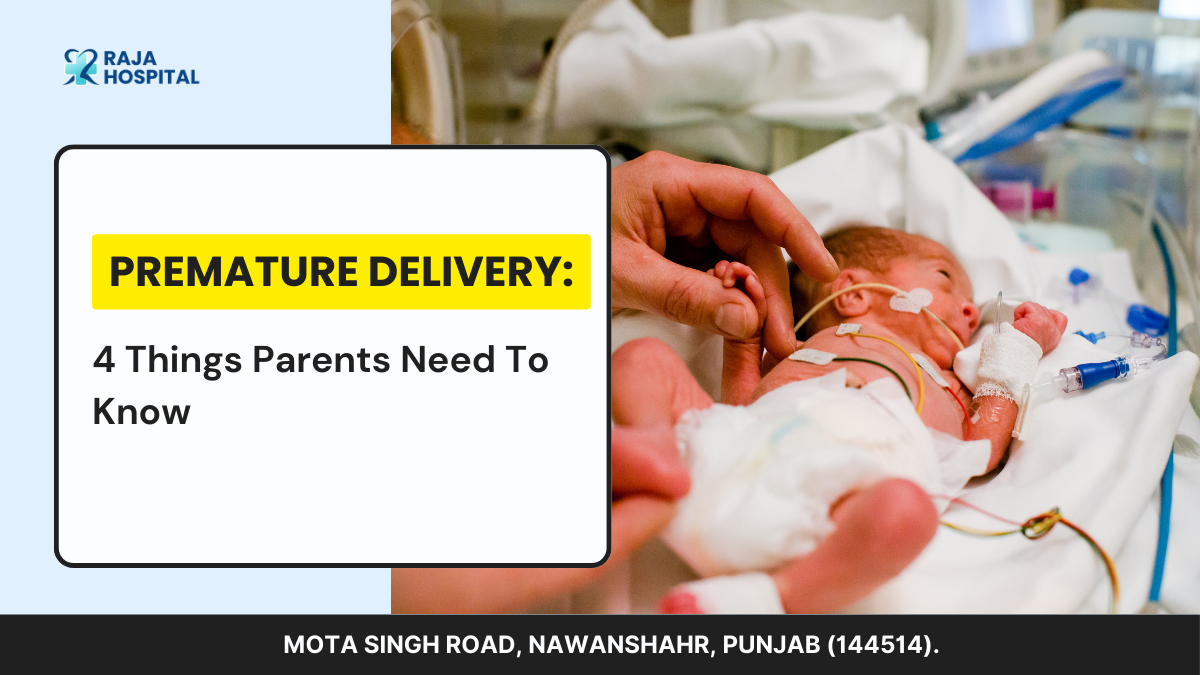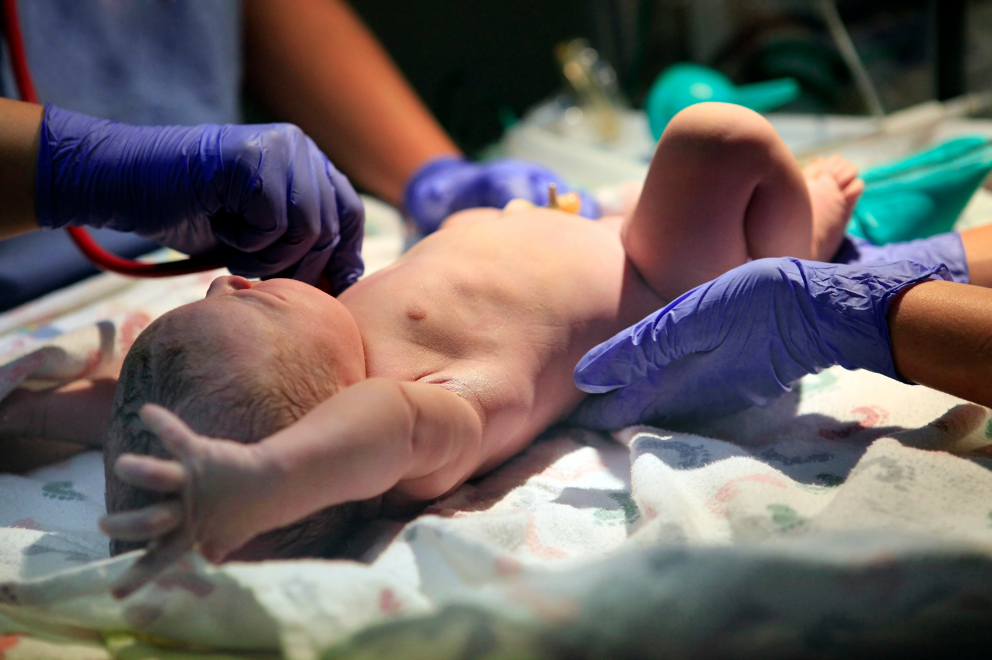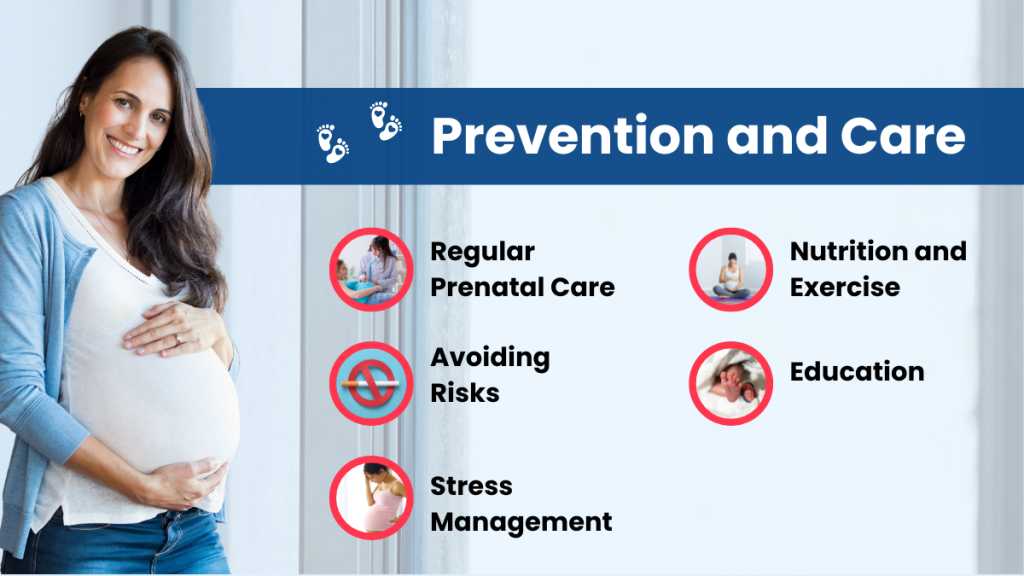Premature Delivery: 4 Things Parents Need To Know.

REVIEWED BY DR. LAkshita Saini (MBBS, MS OBS & GYNAE) ON 15TH MAY 2024.
Preterm delivery or Premature delivery is the birth of a baby before 37 weeks of pregnancy. Pregnancy is usually considered a period of about 40 weeks, and thus, this article explains that preterm babies are usually very small and fragile but become strong and healthy with the help of special care. The little fighters have to be assisted to catch up, which doctors and nurses work tirelessly to provide.
These little ones just seem to be in such a hurry to say “hi” to the world! So with modern Medicines, they can attain a healthy, wealthy lifestyle. Here’s what you need to know.
What is Premature Delivery?

Premature delivery is when a baby decides he would rather make his big debut on this world stage before the 37th week of pregnancy, which is pretty much less compared to the normally expected 40 weeks. However, the most important implication of such an early arrival, from a medical point of view, is that it can leave the baby at a considerable number of risks. They are:
- Statistics Highlight: Over 10% of babies worldwide are born prematurely.
- A Global Concern: Premature birth is the leading cause of death in children under the age of 5.
- Why Worry?: Premature babies may face challenges like developmental delays and health issues.
- A Closer Look: This clearly underscores the need for better health in countries and regions facing high cases of premature birth.
- The Financial Strain: The costs associated with looking after a preterm baby are quite high, and both the family and the healthcare systems feel financial strains.
Why Does Premature Delivery Happen?
Premature birth gives less time for the baby to mature in the womb. This may happen too early because of many things, like:
- Multiple pregnancies (twins, triplets, etc.) stretch the womb more than usual.
- Infections and chronic conditions (like diabetes and high blood pressure) that affect the health of the mother.
- Problems in the uterus, cervix, or placenta may include a short cervix or placental abruption, in which the placenta partially or completely breaks away from the wall of the womb.
- Lifestyle factors include smoking, drug use, and extreme stress.
- Being underweight or overweight before pregnancy, or not gaining enough weight during pregnancy.
- Previous premature delivery or other pregnancy complications.
- Certain pregnancy complications, like preeclampsia.
Sometimes the cause is not known. Healthcare providers help prevent early births by taking care before birth through regular visits, monitoring, and care of the mother and the baby during pregnancy.
Signs and Symptoms Leading to Premature Delivery

- Contractions: A telltale sign, often before 37 weeks.
- Water Breaking Early: The rupture of membranes before term.
- Cramps: Similar to menstrual cramps, signalling potential labor.
- Backache: A low, dull backache can be a precursor.
- Pressure: A feeling of pressure in the pelvis or vagina.
Consequences and Complications
- Immediate Challenges: Difficulty breathing, heart problems, and temperature control issues.
- Developmental Delays: Potential for learning disabilities and physical challenges.
- Vision and Hearing: Increased risk of problems in these areas.
- Emotional Rollercoaster: Parents may experience a whirlwind of emotions, from guilt to overwhelming love and worry.
- A Lifelong Journey: Whereas it is true that some preterm babies will have to live their lives facing different kinds of health challenges, most grow up to live normal, healthy adult lives.
Why Premature Delivery is Serious

Premature delivery, when a baby is born before 37 weeks of pregnancy, is serious because:
Tiny Bodies, Big Battles: These little ones may be just a wee bit too small to fend for themselves in the big, wide world out there. Some can have problems doing the most basic things—like breathing, keeping warm, and feeding themselves.
Extra Medical Care: Most preterm infants end up spending their first day or weeks in a NICU (Neonatal Intensive Care Unit) to provide special care for them to grow strong.
Development Watch: Babies born prematurely often have to be “watched” pretty closely in the way of keeping up with their developmental milestones and seeing that they are catching up with time.
It’s truly interesting how strong and tough preterm babies may be, despite all adversities; and grow up to do all the marvelous things babies born on time do. Families, doctors, and nurses together—everyone is building a support system around the child, a super team that gives love and support all the way through.
Optimal Weight for Babies and Mothers
Optimal Weight for Babies:
Healthy weight range: Between 2.5 to 3.5 kg for babies born full-term; slightly less for those born prematurely.
Factors influencing weight: Includes gestational age, the health of the mother, and genetics.
Risks associated with low birth weight: Such babies are more susceptible to infections, may experience breathing difficulties, and could face delayed growth.
Monitoring growth: Essential through regular doctor visits and using growth charts.
Optimal Weight for Mothers:
Before pregnancy: A healthy BMI (Body Mass Index) of between 18.5 to 24.9 is recommended.
During pregnancy: A weight gain of 25-35 pounds is recommended for women with a normal BMI, with adjustments for those under or overweight.
Post-pregnancy: Advised to focus on a gradual weight loss via a healthy diet and moderate exercise.
Prevention and Care

While not every early delivery can be averted, a tapestry of love, care, and medical wisdom can weave a more wholesome beginning for these innocents.
- Regular Prenatal Care: The cornerstone of a healthy pregnancy.
- Nutrition and Exercise: A balanced diet and regular activity.
- Avoiding Risks: No smoking, substance abuse, or unnecessary medications.
- Stress Management: Reducing stress through relaxation techniques.
- Education: Understanding the signs of premature labor.
When to Seek Medical Advice
If you have symptoms of early labor, get in contact with your healthcare provider right away. That means it’s not too early to call the doctor if you’re having odd back pain, cramps, tightness, or a change in your baby’s movements.
FAQs
Conclusion
This baby-sized journey through premature delivery is the ultimate testament to those tiny warriors who fight to thrive and the families who fight right alongside them. Encouraging early and regular prenatal care may make a difference for such babies, beaming a light of hope on their otherwise hard path. Together, let’s embrace these little fighters with all due love, care, and support.
If you are pregnant, make sure regular prenatal checkups book your little one a healthy journey with Raja Hospital.
